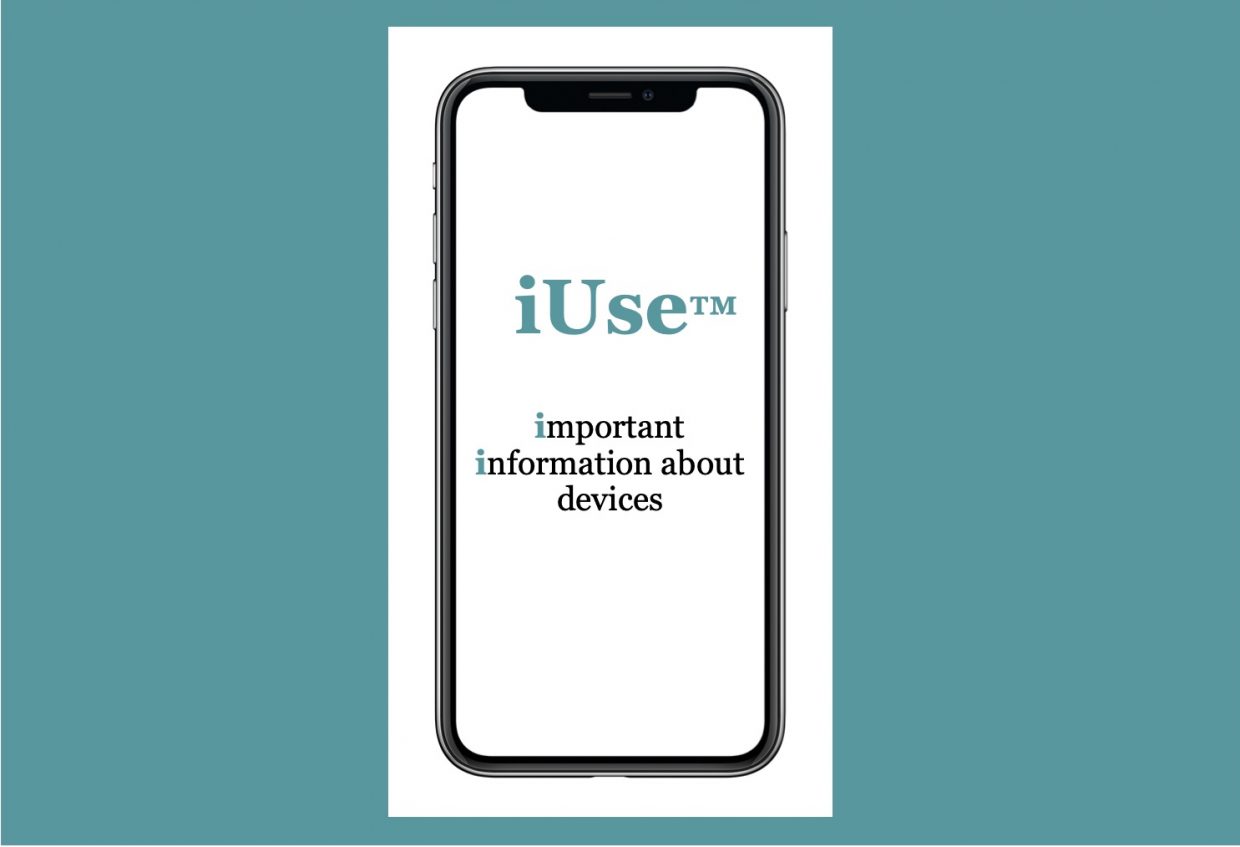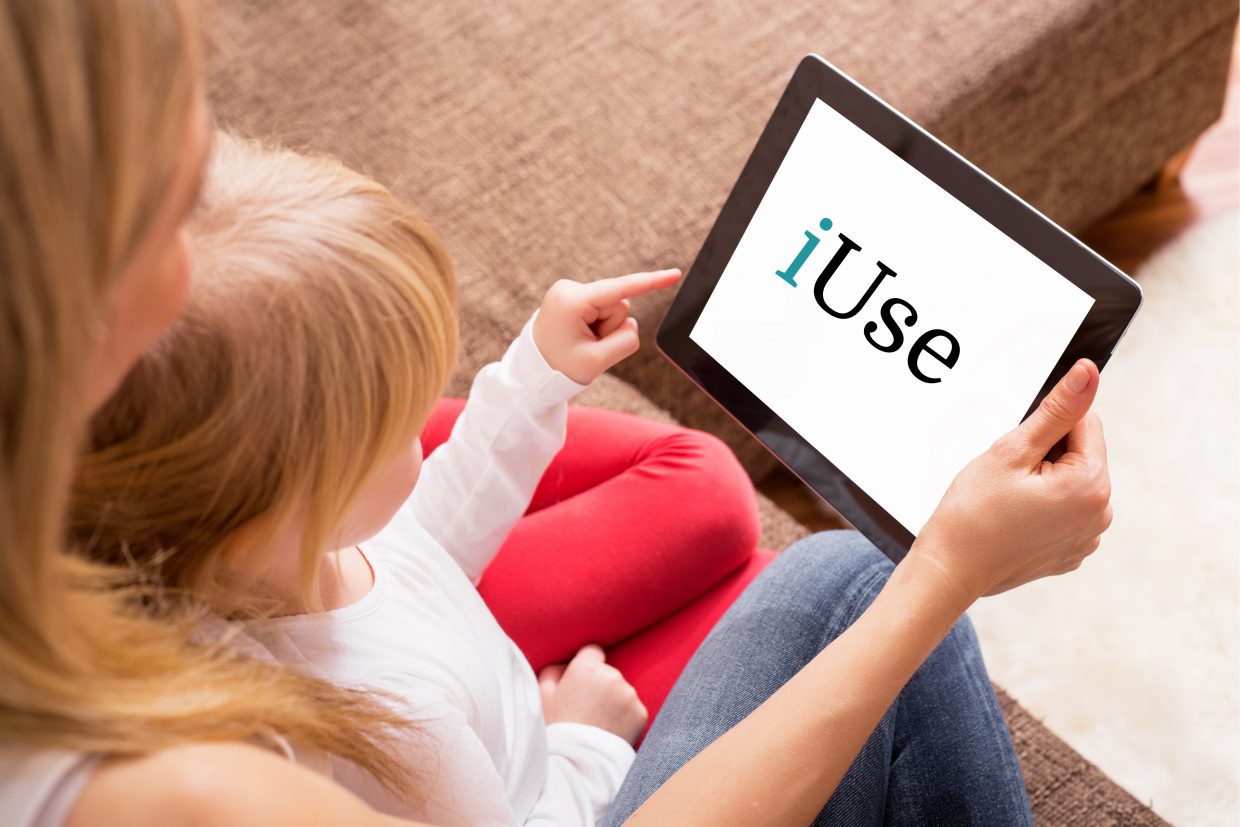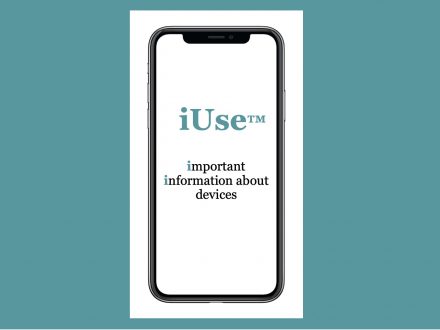Let us introduce you to iUse– our easy to remember mnenomic that details the nature of the digital world so that you can develop guidelines and safe practices for your family’s digital device use.
The parenting model we recommend at BeCuriousNotFurious – Unplug from Worry, Plug-in to Your Kids, and Teach Skills – has emerged from our efforts to help parents manage the many challenges that arise from living in a world full of screens. We observe time and again how often a parent’s fear and worry about the impact of screen time on their children gets in the way of both their relationships with their children and with teaching them what they need to know.
Parents find themselves in this situation honestly as they aim to raise their children well. Facts about devices are indeed important for parents to seek out and know. Unfortunately, much of the available information about children’s device use pays far more attention to control and reduction of use than it does to guidance about teaching skills for healthy use. Too often this blocks curiosity and problem solving by ramping up fear and increasing parents’ consternation, frustration and worry — especially when they discover how hard it is to control or reduce their child’s screen time.
iUse was developed to give parents and kids the information they need about devices without unduly ramping up the anxiety and fear or inundating them with research findings. The information in iUse is firmly grounded in research yet includes only the facts that are most relevant to parents for creating guidelines, rules, lessons and conversations about healthy device use. The information and its implications are concise, clear, manageable and easy to remember.
As with most tools in your toolbox, you will get more from iUse when you are curious, not furious (i.e. unplugged from worry/regulated) and are plugged-in to your kids. Under such conditions, iUse can help you have the clarity and confidence to:
- Develop realistic, developmentally appropriate expectations and guidelines for use
- Be mindful and healthy with your own device use
- Have informative conversations with your children about the nature of devices and what is required to use them in a healthy manner
- Create teaching plans to develop the skills needed to manage the realities of technology and devices
This week’s post is an overview of iUse. In the next four posts we will focus in more detail on each of the components and implications of iUse. We then also provide practical, realistic, and doable suggestions for addressing and managing those implications in your family’s life with technology. For this week, we encourage you to be curious about the parenting implications and applications of the information in iUse.
And now, without further ado, we present iUse.
iUse™
important information about device use
i– Digital devices are intuitive and irresistible by design
U– Digital devices provide unfiltered access to unlimited content (i.e., unsuitable for unsupervised children)
s– Healthy use of devices requires skills and supervision
e– Digital devices are empty of everything the body needs
i-–intuitive and irresistible by design
Digital devices and programming, such as apps and social media platforms, are intentionally designed to:
- Be so easy to operate that little thought or skill is needed to engage with them
- Be powerful, hard to resist magnets for the unconscious drivers of your attention
- Make money from holding your attention
In other words, they are designed to take control of your attention and hold it as long as possible and they are very good at it.
U–unfiltered access to unlimited content, i.e. unsuitable for unsupervised children
One of the wonders of the Digital World is the ease with which you can access just about anything. With one or two clicks you can chat with someone on the other side of the world, watch a show, find a definition, shop, view pornography, etc. The range of possibilities is vast and the streams of information endless. The use of filters, monitors and controls is largely the responsibility of the user.
s–skills and supervision required
It takes a lot of skill to manage the intuitive and irresistible design of devices and apps along with the unfiltered, unlimited stream of online content in a healthy and balanced manner. Most of the skill required falls into the category of executive function or self-regulation skills. These are critically important skills, highly correlated with success and well-being, that do not typically mature fully until around the age of 25. These skills include:
- Regulation of attention
- Regulation of emotion
- Critical thinking
- Managing transitions
e–empty of everything the body needs
Sleeping, eliminating, procreating, hydrating, physical touching, moving and exercising are fundamental needs of the body that are impossible to meet in the Digital World. Although apps and programs may facilitate and direct these activities, the needs of the body can only be meet through activities performed in the Physical World. The attention-grabbing nature of screen-based and online activities can, and often does, divert attention from the signals and needs of the body.
We encourage you to Be Curious, Not Furious about this information and to ponder the implications it carries for your parenting decisions about devices. Next week we’ll share our thoughts and suggestions about how to use i – intuitive and irresistible by design – to inform and guide you as you raise children in a screen filled world. In the meantime, keep practicing our winning formula – Unplug from Worry, Plug-in to Your Kids and Teach Skills!
Leave a Reply











